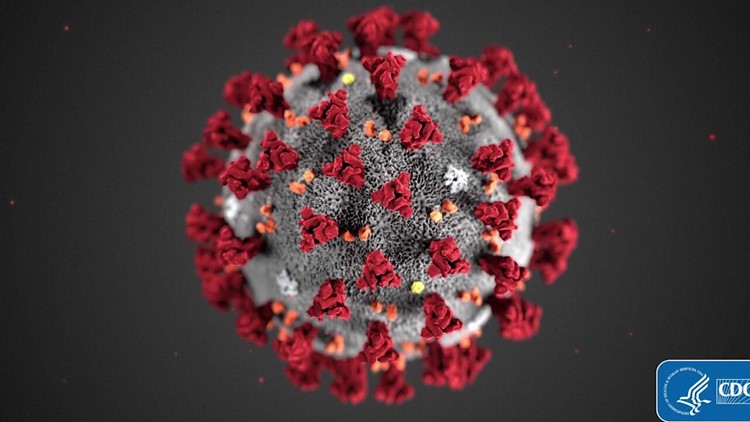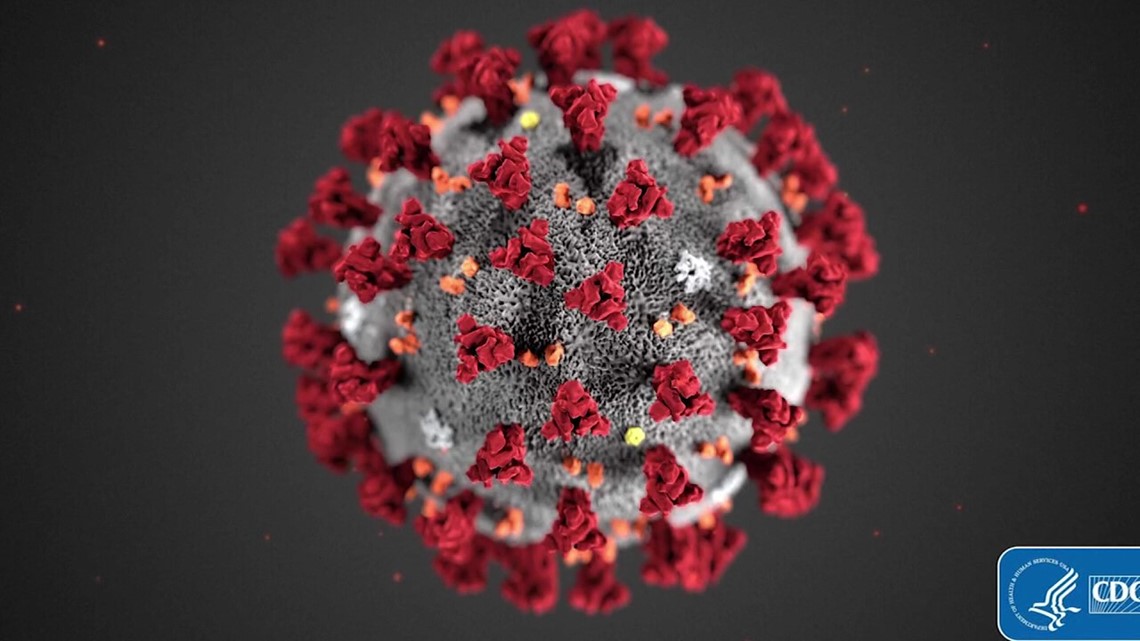
The Delta COVID variant is considered more contagious and could patients sicker. Colorado health officials say vaccines do still offer protection
DENVER — The Delta COVID variant originated in India but spread worldwide. When health officials talk about the variant showing up in Colorado, it’s quickly followed by telling people to get vaccinated because it will protect them.
We chatted with infectious disease specialists about how they figured out the vaccine efficacy for a mutating virus.
Vaccine efficacy?
Dr. Michelle Barron with UCHealth said most information is coming from other countries.
“Most data we have is coming out of Europe. This is where they experienced the Delta variant before we did and had high levels of vaccination rates,” said Barron.
Dr. Rachel Herlihy, the state epidemiologist with the Colorado Department of Public Health and Environment (CDPHE), added: “The studies that were done specifically looked at the Pfizer vaccine and estimated that vaccine was about 88% effective.”
The same is anticipated for the Moderna vaccine. Experts said, overall, it’s still very effective but a little lower than the 94 to 95% protection seen for other strains. Protection against the variant that originated in the U.K. is estimated to be in the 90th percentile.
Barron emphasized it is very important for people to complete both doses of their vaccines. She said for the Delta variant, vaccine effectiveness dropped to around 33% in-between doses versus 60 to 80% found in studies for the original strain of COVID.
As for the Johnson & Johnson vaccine, Barron said there isn’t a ton of data yet.
“I didn’t see much data on J&J because J&J is not available in Europe. AstraZeneca, which is sort of similar equivalent to J&J, again showed in the 80% protection rate.”
While there is a lot to learn, the infectious disease doctors and CDPHE said the vaccines available now in the U.S. are all still very effective to protect people.
How did they figure vaccine efficacy?
The way health officials figured out vaccine efficacy in its own way is straightforward.
Through genetic sequencing, they know what variants are circulating in a community.
“If a patient gets sick and developed symptoms and tested positive — and seeing how many of those individuals received a vaccine — that’s a raw way we normally do vaccine effectiveness,” Barron said.
She added that it’s not a perfect or exact science, but that it does give a snapshot of how well the vaccines work against mutations of the coronavirus.
Barron said vaccines have been found to be effective even though the virus has changed because “it appears that the breadth of the antibody response from vaccines is just enough to still dampen the effect of the variants. We don’t know that this is true for natural immunity, in which the antibody response appears to be pretty specific to the strain you were infected with.”
Dr. Connie Price with Denver Health added: “When developing the vaccine, depends on what you use on the virus to target the immune response to. If it’s a fairly conserved part of the virus, meaning part of the virus that doesn’t mutate very much, then it should be preserved.”
CDPHE gave some more insight.
“When mutations occur, they cause slight changes in the proteins present on the surface of the virus but not all of those proteins are changed,” Herlihy said. “The virus might look a little bit different to our immune system. So we still have significant protection. Perhaps not quite as much as we would have originally for those vaccines designed for a specific type of virus that was slightly different than the virus we are seeing now.”
RELATED: State health department to start calling people who aren’t vaccinated
RELATED: To get the COVID vaccine to more Hispanic Coloradans, the new goal is meeting the unvaccinated where they are
How prevalent is the Delta variant?
The Delta variant was first detected in Colorado in Mesa County.
The public health department there said in a couple of weeks, it became the dominant strain in their community.
When compared to the variant that originated in the U.K., Mesa County Public Health said both variant cases grew exponentially in a matter of weeks but total case numbers for the Delta variant are higher.
In Denver, one case has been detected so far with “no known notable exposures,” according to city and county health officials.
“Studies from UK looking at Pfizer and Astra-Zeneca (not available in US) vaccine effect on the Delta variant indicate possible reduced vaccine effectiveness with a single dose of vaccine. But with full vaccination, it does provide protection against hospitalization and symptomatic disease. These vaccines were slightly less effective on Delta variant compared to Alpha variant* (B.1.1.7), but still at or above 85% effective in all categories with full vaccination. CDC reports the Delta variant has potential reduced effectiveness of monoclonal antibody treatments. This is the outpatient intravenous treatment available that prevents onset or worsening of disease.”
Across the state, CDPHE said the delta variant has been detected in 20 counties, with a cluster of cases in Mesa County.
Why is it more contagious and severe?
All the experts we talked to said it appears the Delta variant spreads faster and can make people sicker.
As for why, Barron said that is still being looked into.
“I’m not sure that we know. We’ve talked about how when variants develop and make copying errors and sometimes that causes more stimulation to the immune system and sometimes it has no impact at all. I suspect that’s what happened. It’s triggering something in your immune system to cause more inflammation that’s why I think people get more sicker, is that inflammatory response. As for why it’s more contagious, I don’t have a good sense. There are a couple of things I would hypothesize. It could be it’s able to produce more of it. If you a virus machine going at full capacity, the more you have the more likely you are to transmit. I think that’s probably what’s going on with this. It’s able to copy itself more. There are other factors sometimes it binds to your nose or receptors in your mouth faster or better so you get more infection as well. I don’t think we have a definitive answer yet.”
What does this mean for how we live?
Barron said her advice to folks is the same: get vaccinated and weigh risks.
“Being fully vaccinated still allows you a lot of liberties and terms of masking and terms of gathering and activities people enjoy doing. Like all things, you need to consider your individual self and what your potential risks are. We still know people who are immunocompromised or on meds that affect the immune system or disease that affects their immune system they may not be starting at this high level. For those individuals that have those conditions you should still be able to go out and do stuff but maybe use a little extra caution. If you are going to be in a large gathering with people you don’t know and don’t know their vaccine status those are the instances masking may be to your benefit. Even if you are not immunocompromised some people will still feel better wearing a mask – that’s ok. You have to think in your head what am I doing, what’s the potential risk of being exposed. Maybe I’m healthy but someone in my household is vulnerable and maybe I want that extra level of protection.”
CDPHE said a lot of the spread for the delta variant is among those who are not vaccinated so urged people without their shots or partial shots to take COVID precautions seriously.
Another concern is for kids who aren’t vaccinated and too young to be vaccinated.
RELATED: 3rd winner of Colorado’s $1 million cash drawing announced
RELATED: Denver Sheriff Department distributes 1K vaccines to those in-custody
SUGGESTED VIDEOS: Full Episodes of Next with Kyle Clark













































